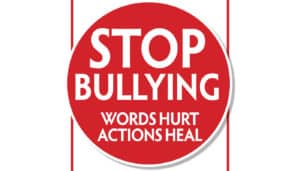
Family engagement is a shared responsibility in which schools and other community agencies and organizations are committed to reaching out to engage families in meaningful ways in which families are committed to actually supporting their children’s learning and development.
Family engagement is continuous across a child’s life and entails enduring commitment but changing parent roles as children mature into young adulthood.
Effective family engagement cuts across and reinforces learning in the multiple settings where children learn – at home, in prekindergarten programs, in school, in after school programs, in faith-based institutions, and in the community.
The family engagement definition was developed in 2010 by the National Family, School and Community Engagement Working Group with many members of which are now on the NAFSCE’s Board of Directors.
- Apps Parents Should Know About
- Attendance
- Community Engagement and Schools
- Fatherhood
- Keeping Track of Your Child’s Online Activity
- Managing Emotions – Strategies for Effective Communication
- Parent School Partnerships
- Social Media and Students with Disabilities – A Resource Document
- Text Acronyms / Online Acronyms
- The Role of School Resource Officers in Virginia Public Schools
- Why Parent Engagement is Critical To Student Success
- Working with Families of Children with Special Needs
- Your Voice Counts-Advocating for Change

Bullying, in any form, is a serious issue that affects both the victim and the perpetrator. Bullying poses a threat to the emotional and physical well-being of students and can adversely impact their academic performance. Cyberbullying amplifies these risks by using digital platforms to extend the reach and impact of bullying behaviors.
Bullying is defined as a form of youth violence and an adverse childhood experience (ACE). Bullying is any unwanted aggressive behavior(s) by another youth or group of youths who are not siblings or current dating partners that involves an observed or perceived power imbalance and is repeated multiple times or is highly likely to be repeated. Bullying may inflict harm or distress on the targeted youth, including physical, psychological, social, or educational harm.
Any child can be a victim of bullying or harassment. Still, research continues to show that children with disabilities are both more likely to be bullied or harassed and more likely to be seriously harmed by bullying. Unfortunately, children with disabilities may be less likely to seek help to stop bullying from happening.
The U.S. Department of Education defines disability harassment as conduct that intimidates a student due to their disability, creates a hostile environment, and interferes with or denies a Free Appropriate Public Education (FAPE).
Bullying Among Specific Student Groups
- Bullying and Youth with Disabilities and Special Health Needs
- How to Help a Child Who Is Being Bullied (Military)
- Addressing Bullying Among Hispanic and Latino Children and Youth at School Setting
Resources for the Child who Bullies Others
Cyberbullying is the use of technology to intentionally harass, threaten, embarrass, or target another person.
- Addressing Bullying Among Hispanic and Latino Children and Youth At School Setting
- Bullying and Children with Disabilities – Health Care Needs
- Bullying and the IEP
- Bullying Behavior and Mental Health
- Bullying Resource Center
- Cyberbullying
- Dear Colleague – Bullying (USDOE)
- Improving School Safety Through Bystander Reporting: A Toolkit for Strengthening K-12 Report Programs
- Model Policy to Address Bullying in Virginia Schools
- Notifying School about Bullying (Letter/Email Template)
- Recordkeeping and Bullying (PACER Resource)
- Types of Cyberbullying
- Understanding Bullying and Cyberbullying



